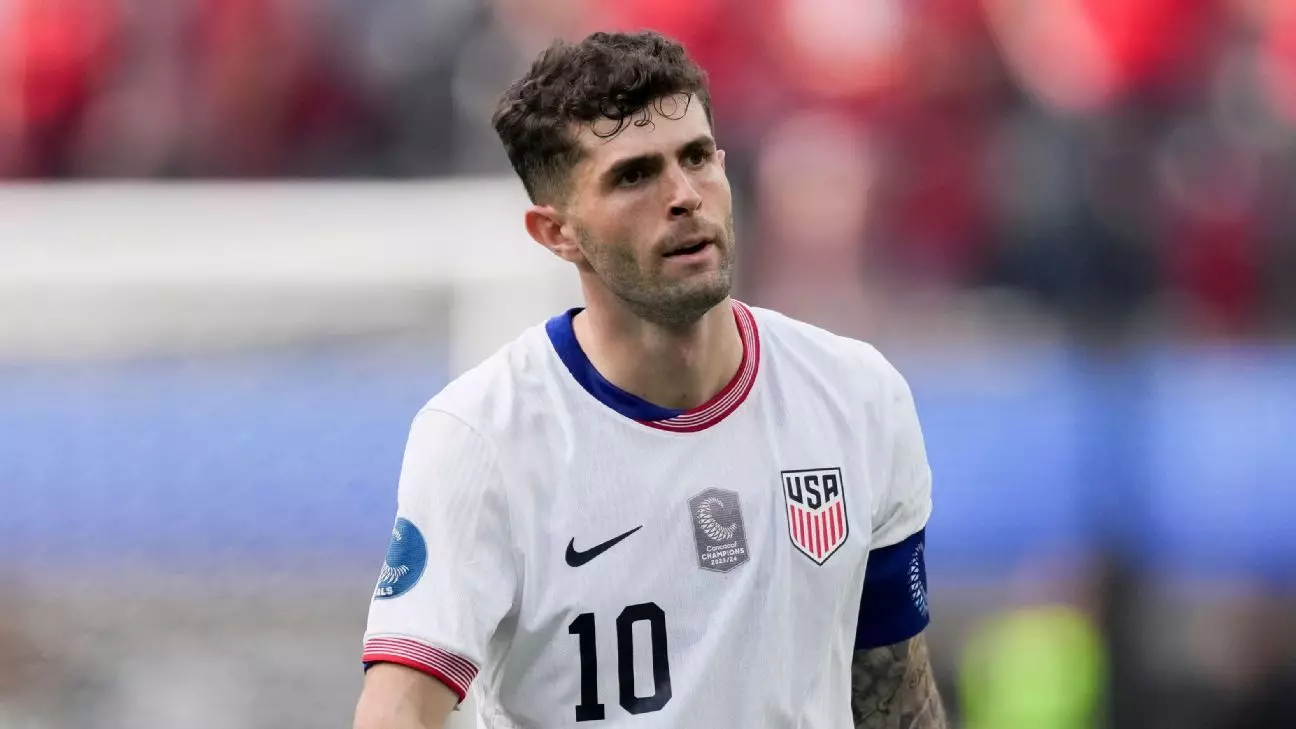In the world of professional soccer, the expectations placed upon players can be overwhelmingly high. One recent incident highlights this pressure starkly: Christian Pulisic’s choice to sit out the upcoming Gold Cup for rest following a grueling season with AC Milan has stirred significant controversy. The strong words of soccer icon Landon Donovan, who criticized Pulisic’s decision, showcase a broader conversation about mental and physical health in sports, as well as the obligations athletes feel to their teams and countries.
High Expectations and the Personal Cost
Donovan, known for his passionate commitment to the U.S. national team, expressed disappointment during a Fox Sports broadcast, emphasizing the essence of representing one’s country. Citing Portuguese superstar Cristiano Ronaldo’s dedication despite age and fatigue, Donovan implied that players should prioritize national duty over personal wellbeing. The underlying message seems to suggest that any relaxation or rest is tantamount to a lack of professionalism; a sentiment echoed by fellow former player Alexi Lalas, who believes that Pulisic’s absence jeopardizes team cohesion ahead of a complex World Cup cycle.
However, this perspective raises crucial questions about what it truly means to be a responsible athlete today. Pulisic’s decision is not one made lightly. After enduring a physically taxing season that left many professional players feeling drained, the pursuit for health—both mental and physical—can often conflict with the performance expectations of pundits, fans, and former players alike.
The Balance Between Rest and Responsibility
Mark Pulisic took to social media to showcase his defense of his son’s choice, referencing a moment from Donovan’s career when the former player took a sabbatical and ultimately missed the 2014 World Cup. This brings to light the reality many athletes face: the need for balance. While some may argue that representing one’s country is a paramount duty, the majority of elite athletes endure a relentless cycle of competition, pressure, and media scrutiny that can lead to significant burnout if not managed properly.
Moreover, a player’s choice to step back can sometimes be essential for longevity in a sport that demands high physical and mental stamina. This complexity often escapes public discourse, as athletes are frequently placed upon a pedestal devoid of understanding their individual journeys, struggles, and, importantly, their need for downtime.
A Shifting Conversation on Player Wellness
The backlash against Pulisic denotes a generational clash in sports culture. Athletes like Donovan came up in an era where a tough exterior and unquestionable dedication were synonymous with success. Nowadays, there is an evolving understanding of mental health, with many young athletes advocating for self-care and well-being. As the landscape of sports continues to transform, it becomes increasingly vital that discussions surrounding commitment also encompass issues of player welfare.
Critics like Donovan and Lalas may view Pulisic’s absence as a setback from a tactical standpoint, but they must also consider the long-term consequences of neglecting player health. Opportunities for success on the pitch may hinge on the mental acuity and physical readiness of the players, which can ultimately be undermined if they are not granted the necessary time to recuperate.
Moving Forward: Building a Supportive Athletic Culture
This incident and the ensuing dialogue call for a reckoning within the sport. The sports community must prioritize a supportive environment that acknowledges the holistic needs of players. For coaches, team leaders, and figures in leadership positions, it is paramount to handle these situations with care. Emphasizing wellness and understanding the potential ramifications of pushing athletes beyond their limits should be at the forefront of discussions, especially with high-stakes competitions looming.
Fans and former players, too, must temper their expectations and embrace a broader perspective on what it means to engage in sports at the elite level. Sacrificing one’s health for the sake of national pride can prove detrimental not only to individual players but to the very teams they wish to serve; a lesson that highlights the importance of empathy in sports, and indeed, the need to reshape the narrative surrounding player dedication and sacrifice.

